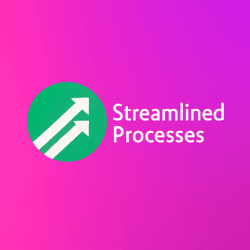For Affordable Payment Solutions, see our main page here.
Why Payment Solutions Matter for Small Businesses
Managing money flows is one of the top challenges for small companies. Whether collecting payments online or in-store, efficiency and cost control often decide long-term survival. Affordable Payment Solutions allow these businesses to scale, improve cash flow, and reduce overhead.
For example, a local bakery using a modern point-of-sale (POS) system with mobile pay options increased customer retention. Why? Because checkout became faster, and payment methods expanded. As a result, they saw a 15% rise in weekend revenue without complex upgrades.
Key Features of Affordable Payment Solutions
The right tools simplify finance operations. Most importantly, they help businesses avoid hefty transaction fees, hidden charges, and clunky interfaces. Here’s what defines a reliable and affordable option:
- Low transaction rates: Some providers charge a flat fee per swipe or only take a small percentage.
- Flexible contract terms: No long-term commitment, so businesses can shift strategies easily.
- User-friendly software: Dashboards for invoices, receipts, and real-time tracking.
- Secure processing: End-to-end encryption to protect customer data.
- Multi-channel support: Accept payments online, offline, and on mobile.
Choosing the Right Affordable Payment Solutions
Not all services meet the same needs. A solo consultant may prefer invoicing tools with ACH transfer support. On the other hand, a retailer might seek card readers and tap-to-pay systems. Therefore, selecting the right provider depends on your business model.
Let’s compare two common options:
- Square: Ideal for brick-and-mortar shops. It offers low hardware costs and a built-in POS for under $300.
- Stripe: Perfect for online businesses. It supports subscription models and third-party integrations.
So, a fitness coach selling online classes would gain more from Stripe’s tools. Meanwhile, a food truck owner might thrive using Square’s mobile capabilities.
How Affordable Payment Solutions Evolved Over Time
The way businesses collect payments has changed dramatically. Not long ago, accepting credit cards required a dedicated machine, a merchant account, and high monthly fees. Today, tools like PayPal, Venmo for Business, or QuickBooks Payments provide smoother experiences and often cost less.
Since 2015, mobile payment use has grown by over 200%, according to Statista. This trend has encouraged software companies to compete by lowering rates and simplifying platforms. In conclusion, businesses now enjoy more access than ever to affordable tools that were once unavailable or too pricey.
Real-World Success with Affordable Payment Solutions
One great example is a family-owned bookstore in Oklahoma that switched from a traditional merchant processor to a bundled POS and payment provider. Their processing costs dropped by 22%. Moreover, the staff found the system easier to use, leading to shorter lines and happier customers.
Similarly, a freelance graphic designer cut invoice processing time in half after adopting a digital wallet-to-bank integration service. In other words, both time and money were saved.
Challenges and Common Pitfalls to Avoid
Despite the benefits, it’s crucial to watch for these issues:
- Hidden service charges: Some “low-cost” options add monthly or inactivity fees.
- Poor customer support: Choose services with human response teams, not just AI bots.
- Limited functionality: Some tools lack recurring billing or multi-user access.
To clarify, always read the fine print before signing up. Run a three-month trial if possible. This will reduce long-term risk and allow your team to test usability in a real environment.
Trends Driving New Affordable Payment Solutions
Flexible work and online services have pushed the landscape forward. Demand for compatibility with CRMs, accounting systems, and even AI-based analytics has soared. As a result, many newer providers bundle automation and reporting into one dashboard.
Recent fintech startups target industry-specific pain points. For example, salons use tools like Vagaro for both bookings and payments. Similarly, nonprofits are adopting low-margin solutions tailored for donations and recurring gifts.
How Automation Enhances Affordability in Payment Solutions
Automation cuts down on manual errors, reduces labor costs, and speeds up transaction cycles. In turn, this lowers the total expense of handling money. Many services now offer automatic reconciliation, receipts, chargeback tracking, and even predictive analytics.
For instance, a cleaning company using automated recurring billing software reduced missed payments by 40%, saving dozens of admin hours per year. This kind of small win adds up over time and improves business sustainability.
Security Considerations When Choosing Payment Tools
Above all, never compromise on payment data security. Even affordable platforms should meet PCI DSS standards and use tokenization or encryption methods to protect customer info. Multi-factor authentication should also be available for admin-level access.
To sum up, always review privacy policies and service-level agreements before integrating a new payment solution. Costs matter, but protecting your brand’s reputation is priceless.
FAQ: Common Questions about Affordable Payment Solutions
- Q: Are low-cost payment tools less secure?
A: Not necessarily. Look for PCI-compliant services with proper encryption and fraud detection. - Q: Will I save money by switching providers?
A: Most likely yes, especially if you’re using legacy systems. Compare fees, use-case fits, and online reviews. - Q: Can I get affordable payment solutions for international clients?
A: Absolutely. Tools like Payoneer and Wise offer global invoicing with affordable exchange rates. - Q: Are there hidden costs to watch out for?
A: Yes. Some providers charge extra for withdrawals, settlements, or call support. Always review fee schedules up front. - Q: Do these solutions integrate with accounting apps?
A: Many do. Look for integrations with QuickBooks, Xero, or similar software to streamline bookkeeping.
Final Thoughts on Making the Right Choice
Affordable Payment Solutions don’t just save money—they also boost efficiency and help your business scale confidently. By matching the right tools with clear goals and expectations, you can avoid surprises and gain a competitive edge. Moreover, regularly reviewing your system’s performance ensures you’re staying ahead in terms of both cost and features.
This article was created with the assistance of AI tools and reviewed by our team at Streamlined Processes LLC to ensure accuracy and relevance.
Follow us on Facebook here.

